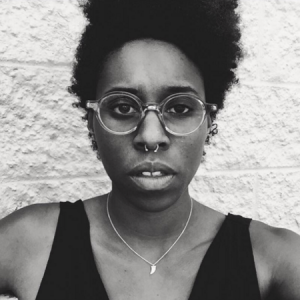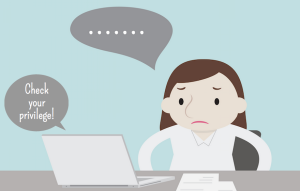When I was sixteen, my friend Mina became the first person my age I knew to be pregnant and have a baby.
Mina had spent a lot of time at my house over the years, and my mom really liked her. But as her pregnancy progressed, she stopped coming around since she dreaded having to share her news.
Eventually, she arrived back one day, and despite the oversized sweatshirt she was wearing, my mom knew at once.
“Oh, Mina,” she sighed. “What happened?”
Later, my mom grilled me. Did Mina’s mom know? (Yes.) Why hadn’t Mina used protection? (I didn’t know.) What about getting an abortion? (Did that the last time this happened.) What about the boy? (He was weird. Older. Only spoke in grunts.) Had she considered adoption? (Nope.)
Though my mom wanted to be supportive, like most other adults we knew, she treated Mina as if she had made a big mistake, driven by irresponsibility and hormones.
That attitude is still fairly common.
And while some teen pregnancies are the result of carelessness, the reality behind many of them is often quite different. And understanding a teen’s situation is the first step towards offering the right kind of support.
So here is what adults should do in order to better support teens.
1. Determine What’s Really Behind a Teen’s Pregnancy
There are a lot of reasons that teens get pregnant, and a lot of different ways teens feel about those pregnancies once they’ve occurred.
And while some of these pregnancies are planned, and some of them are wanted, like over half of all adult pregnancies in the US, most teen pregnancies are unintended.
But even before an adult knows anything about how a teen feels about a pregnancy, or about how that pregnancy came to be, the first reaction is often to treat pregnant youth as if they’ve been wantonly promiscuous or terribly irresponsible.
Aside from the problems inherent in demonizing a teen’s sexuality offhand, doing so also assumes a lot about the sex that teen is having.
But teen sex is not any one thing – and thinking that it is can be a problem.
Maybe the teen had sex once or twice (something that is really common among this age group). Maybe the teen is in a committed relationship and had a contraception failure. Maybe the teen lives in the US, where we make it incredibly hard for minors to access health services – and where, in plenty of places, youth are still carded for condoms, despite the fact that minors are legally allowed to buy them.
Or maybe – and this is troublingly common – the teen is the victim of reproductive coercion or rape.
But regardless of how a teen’s pregnancy came to be, it is our duty as adults to help that teen address the pregnancy in the way that works best for them.
2. Understand the Role of Sexual Violence or Reproductive Coercion
Whether it occurred in the past or is the direct cause of a pregnancy, sexual violence is a huge factor in a lot of teen pregnancies.
One study determined that an estimated 60% of teen girls’ first pregnancies are preceded by experiences of sexual abuse, rape, or attempted rape (as you’ll notice throughout, most research on teen pregnancies focuses on cisgender girls rather than acknowledging the experiences of trans and non-binary people).
In another study, it was found that compared with young women with no history of sexual abuse, those who experienced sexual abuse in either childhood or adolescence had a far greater chance of early pregnancy. And those who experienced sexual abuse in both childhood and adolescence had an 80% greater chance of early pregnancy.
Yet another study found that about 20% of girls who become pregnant do so as the direct result of rape.
We also know that up to two-thirds of teen pregnancies occur within the context of a relationship with an abusive partner, and that girls who are survivors of dating violence are significantly more likely to become pregnant than are girls in relationships with non-violent partners.
In addition to the effect of violence and sexual assault on teen pregnancy, there is the complicated issue of reproductive coercion.
Reproductive coercion refers to a pattern of behavior where a partner (typically male) attempts to force their (typically female) partner into getting pregnant as a means of controlling her and creating a lifelong bond, which will prevent her from leaving him.
There are a lot of ways this happens and sometimes the methods just aren’t obvious. They might fall into the “if you really loved me, you’d have my baby” camp. They might involve physical force, violence, rape, or threats. Or they might occur as the result of contraceptive sabotage, something a 2013 Brown University study found is troublingly common.
Of the patients in that study, a significant 16% reported that their partners had secretly pricked holes in condoms or had hidden or destroyed their birth control pills.
But when a pregnant teen presents to a clinician, this is not typically addressed. Often, girls are lectured on their irresponsibility or given a prescription for the pill without attention given to the reality of what might actually be going on.
As one woman writes on Planned Parenthood’s Tumblr about her experience in college with reproductive coercion, “My abusive ex refused to let me take birth control. I was on the pill until he found them in my purse. I went to the Student Health Center. They were completely unhelpful, choosing to lecture me about the importance of safer sex (recommending condoms), instead of actually listening to my problem.”
And it isn’t only healthcare providers who miss the boat.
Even well-meaning parents and educators sometimes blame the sorry state of American sex education, or cite the lack of access to reproductive healthcare, without looking at the role abuse can play in a teen’s pregnancy.
Hopefully, this is changing.
In 2013, the American College of Obstetrics and Gynecologists began recommending that OB-GYNs screen patients for reproductive coercion by asking questions like, “Does your partner support your decision about when or if you want to become pregnant?”
Unfortunately, pregnant teens are a lot less likely to access reproductive healthcare than are adults, so providing interventions to this population can be incredibly tough.
But remembering that reproductive coercion or a history of violence may be a contributing factor in a teen’s pregnancy and addressing the pregnancy with this in mind can accomplish similar things as can a formal screening done by a healthcare provider.
3. Assess What a Pregnant Teen Wants
Once we know a bit more about how a teen became pregnant, and the world that this teen inhabits, it’s a lot easier to help that teen move forward in the best way possible.
If violence is a current or past issue, getting appropriate help will be key.
Luckily, there are organizations like The National Domestic Violence Hotline and Love Is Respect (a teen-specific dating abuse helpline, which also offers chat and text options) that are tackling the issues of teen dating violence and reproductive coercion head on.
But whether or not violence and abuse are an element of the pregnancy, a teen is going to have to make some important choices about next steps and ask themselves questions: Do I want to terminate? Do I want to continue the pregnancy and then parent? Do I want to continue the pregnancy and then do an adoption?
These are big decisions!
And since we live in a society that doesn’t give minors a lot of agency, denies them legal rights, and creates complicated barriers in the accessibility of reproductive healthcare, adults will usually have to be involved, whatever a teen decides about a pregnancy.
And that can be tough if that decision doesn’t square with what that adult thinks is best. I know I came up against that a number of years ago.
I was working with teens in an after-school program. One of my favorites, Lena, got pregnant after a one-off encounter at a party. She went on to have a baby as a high school sophomore. The baby was taxing and the father uninvolved. But her mother watched him during the day, and Lena went back to school.
Under a year later, Lena was dating a new guy, and shortly found herself pregnant again (not an uncommon event for teen parents). She dithered over terminating, but her boyfriend was adamantly opposed to her having an abortion, and in her community this just wasn’t considered an acceptable option. And while I had long talks with Lena about the abortion option, she still decided to continue the second pregnancy.
I knew that harping on the same issues over and over, and from my totally different perspective, was the least helpful thing I could do.
I started looking into agencies that could provide things like diapers and daycare vouchers. I met with her mom to figure out how they would arrange their schedules, and I sat with them while Lena made an appointment to discuss postpartum birth control.
I felt like there was so much more I should have done, but I also felt positive that when Lena had the second baby, only eighteen months after the first, at least she was on solid ground with her own mom, intended to get depo provera for birth control, was set for childcare, and had a plan in place to finish her GED.
It sure wasn’t what I would have picked for her.
But it also wasn’t my say – and for a teen who was powerless over her life in so many ways, providing her with ways to make decisions about her pregnancy and childrearing was key.
4. Support a Teen Who Decides to Continue the Pregnancy
If a teen decides to continue a pregnancy, there are a number of specific ways for adults to be supportive.
The first is to get on board with the pregnancy. That means no lectures about how you “made your bed,” or sighs over how “your life is now ruined.” No qualifying statements to family members or doctors or teachers about what a “mess” this is, but you will just “soldier through.”
It might be hard to bite your tongue, but all comments like these do is shame and marginalize a pregnant teen.
That being said, there are some differences between teen and adult pregnancies that need to be addressed.
For example, pregnant teens (particularly those under fifteen and those who don’t get prenatal care) are at a higher risk for certain health problems like anemia, high blood pressure, and preterm labor. Plus, some teens are physically very small, and carrying a pregnancy can be especially demanding on their bodies.
The best way to prevent or address these issues is to make sure that a pregnant teen gets good prenatal care, takes prenatal vitamins, and understands the effects of substances and nutrition on a pregnancy. It’s also super important for pregnant teens to get tested, and if need be, treated for sexually transmitted infections.
Additionally, it’s great to help a pregnant teen get into some childbirth classes. These classes can help prepare a teen for the pregnancy, labor and delivery, parenting, and advocating for their own rights.
That’s really important because while in a number of states, a pregnant teen is considered to be an emancipated minor who has the right to make their own decision about their pregnancy, in plenty of places, a pregnant teen is still treated like a child who needs an adults permission over their own body and potentially over decisions relating to the baby.
Ultimately, the more help adults can give a teen during a pregnancy, the better off that teen will be throughout the pregnancy and beyond.
What It All Comes Down To
It can be really hard to support a pregnant teen when we think they’re making a bad or uninformed decision.
But the more we know about the reality of a teen’s pregnancy, the more we will be able to steer them in a direction that’s likely to have the best possible outcome for everyone.
This might mean helping them get an abortion. Or it might mean supporting them through a pregnancy. But it definitely means checking a lot of your own assumptions about what it means to be a pregnant teen in the US today.
[do_widget id=’text-101′]
Ellen Kate is a Contributing Writer for Everyday Feminism. She’s a health educator, sometimes writer, and mom. She has worked at Manhattan’s Museum of Sex, developed sex education curricula in Mumbai, India, and run HIV prevention programs for at-risk teens in the South Bronx. Currently, Ellen runs a middle and high school health education program and teaches human sexuality at Brooklyn College. More of Ellen’s writing can be found here. (clippings.me/ellenkate) Follow her on Twitter @ellenkatef.
Search our 3000+ articles!
Read our articles about:
Our online racial justice training
Used by hundreds of universities, non-profits, and businesses.
Click to learn more





















